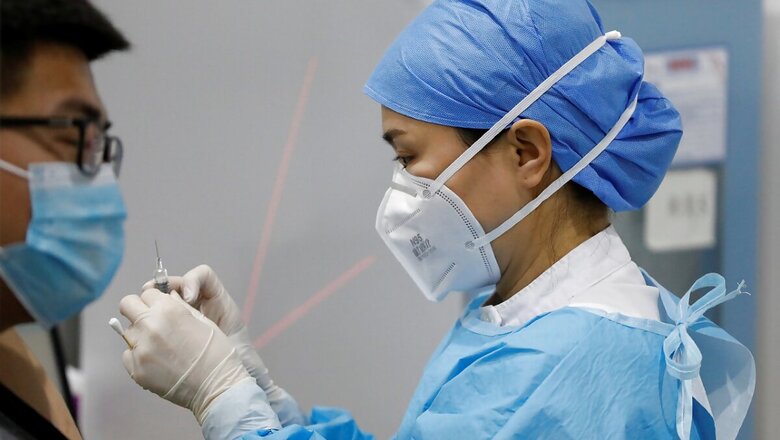
views
Putting to rest concerns raised after its emergency approval earlier this month, the Lancet Infectious Disease journal published a study that said Covaxin – India’s first indigenous vaccine against Covid-19 – showed enhanced immune response without any serious side effects in the participants enrolled for the phase 1 trials.
The study comes at a time when the Indian government is being forced to draw up an elaborate plan to alleviate fears among citizens against taking the vaccine fueled by news reports of severe side-effects (none medically substantiated) in recipients.
Also read | Covid-19: Rising Reluctance to Take the Shot Latest Challenge Before Centre
Hyderabad-based Bharat Biotech, who developed the vaccine in collaboration with the Indian Council of Medical Research (ICMR) and the National Institute of Virology (NIV), Pune, welcomed the move.
“Extremely proud to announce phase I clinical trial studies of Covaxin, published in the most prestigious journal of THE LANCET Infectious Diseases. This is the first clinical trial data publication of a vaccine from India,” tweeted Suchitra Ella, Joint Managing Director of Bharat Biotech.
The study by the revered peer-review journal stated that the 375-participant phase 1 trial showed that Covaxin induced binding and neutralising antibody responds against the novel coronavirus. Among the authors of the paper were Dr Randeep Guleria, Dr Krishna Ella, Dr Samiran Panda and Professor Balram Bhargava.
https://t.co/ZH2pzotMyG pic.twitter.com/UNWxLFIgZp— suchitra ella (@SuchitraElla) January 22, 2021
“BBV152 (Covaxin) led to tolerable safety outcomes and enhanced immune responses. Both Algel-IMDG formulations were selected for phase 2 immunogenicity trials. Further efficacy trials are warranted,” the results said.
An elated ICMR said, “The findings show the safety and immunogenicity of the vaccine as seen in a double-blind, randomised trial.”
On December 25 last year, the ICMR had highlighted the international attention Covaxin was drawing. “Data generated from within India underlines impressive safety and immunogenicity profile of Covaxin and sparks Lancet’s interest in publishing them,” the medical body had boasted in a tweet. The pre-print of this study was published on December 15.
The study also measured the vaccine’s immunogenicity, which is its ability to generate an immune response as measured on two arms – antibody production and T-cell response.
The developers have also spoken about Covaxin showing long-term antibody and T-cell memory responses three months after the shot was administered to phase-1 trial volunteers.
As per the study, local adverse events were pain and swelling at the injection site, and systemic adverse events included fever, fatigue or malaise, myalgia, body aches, headaches, nausea or vomiting, anorexia, chills, generalised rash, and diarrhoea. All adverse events were reported by the participants throughout the study, it showed.
The paper also talks about a serious adverse event which was reported in a group five days after receiving the first shot of the vaccine. While it was initially reported as a “solicited adverse event”, it was later classified as “not causally associated with the vaccine”
“Overall the results published in Lancet today indicate that the vaccine is safe and capable of generating an immune response. The type of T-cell response generated deserves special mention. The vaccine produced a T-h1 biased response, which is the preferred type. This trial is not intended or designed to test efficacy,” Dr Rajeev Jayadevan, science writer and public educator told News18.
Phase 1 studies are done to assess the safety of a new vaccine, and the Lancet results confirm Covaxin’s safety and immunogenicity profile.
Read all the Latest News, Breaking News and Coronavirus News here

















Comments
0 comment